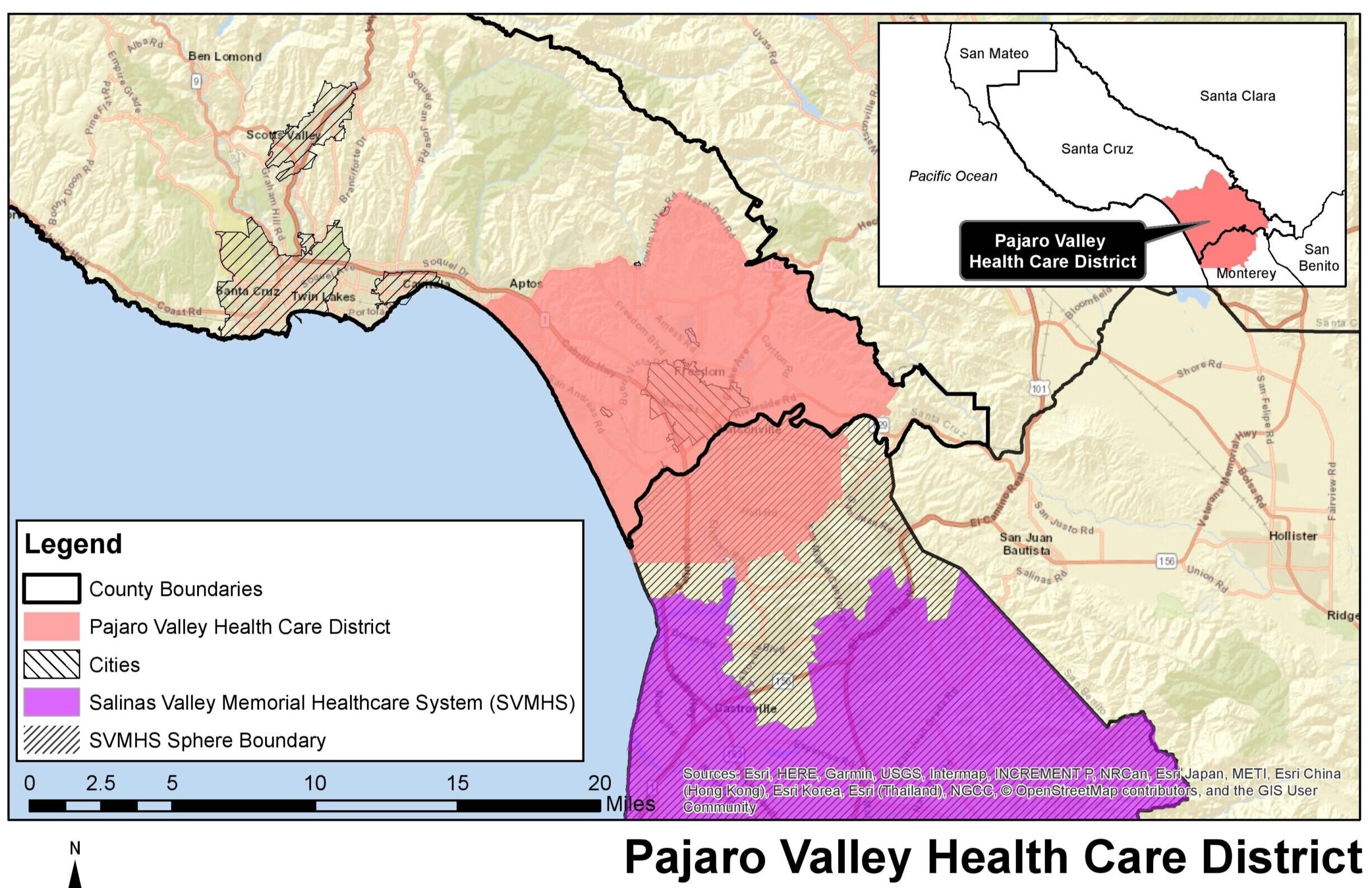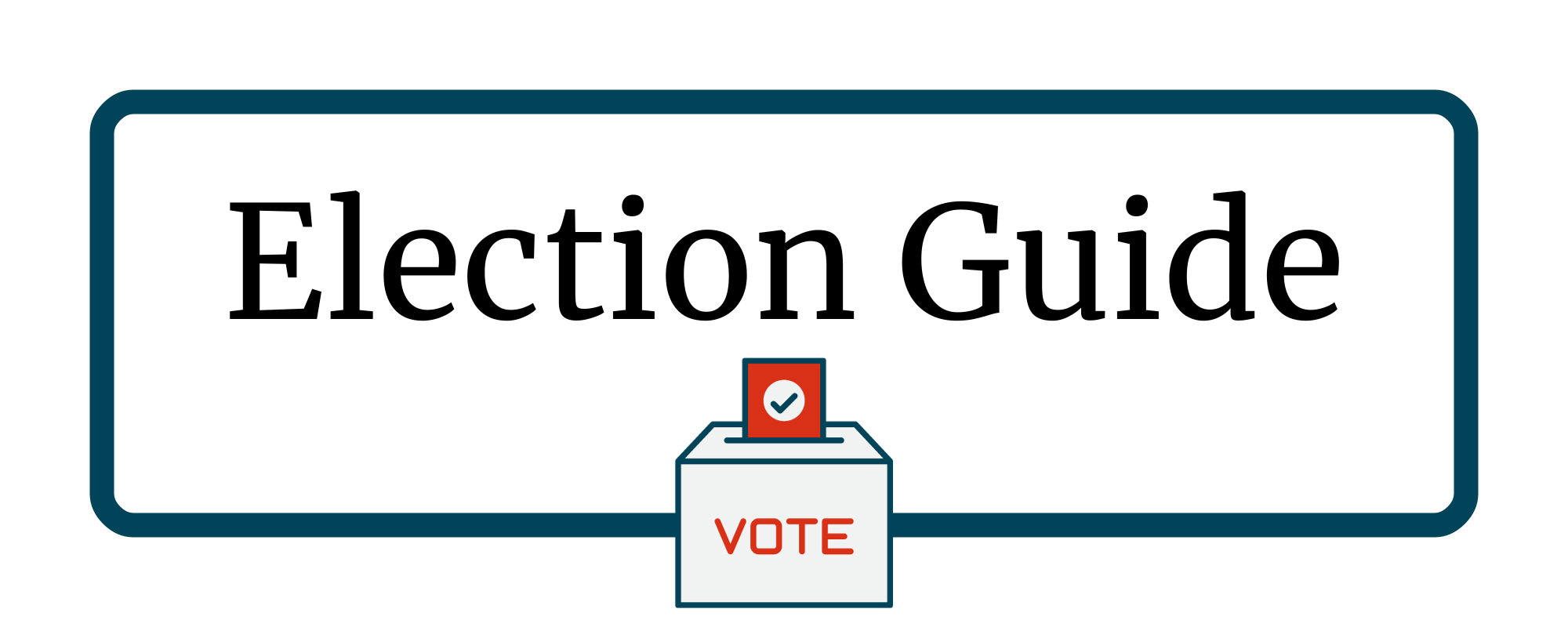¿Qué es la Medida N?
Measure N would allow the Pajaro Valley Health Care District to issue $116 million in bonds to buy the land at Watsonville Community Hospital and make improvements. Property owners in the district would pay $24 per $100,000 of assessed property value annually for 30 years or until the bond is paid off.
La medida aparecerá en las papeletas de los votantes del Distrito Sanitario del Valle del Pájaro. El distrito se extiende desde Aptos hasta Las Lomas, en el condado de Monterey, con límites similares a los del Distrito Escolar Unificado del Valle del Pájaro.
La medida necesita más de dos tercios de los votos para ser aprobada.

La frontera norte de Pajaro Valley Health Care District incluye Rio Del Mar Boulevard, Freedom Boulevard, Browns Valley Road, Hazel Dell Road y la línea del condado de Santa Cruz. El distrito se formó en febrero de 2022 e incluye partes de los condados de Santa Cruz y Monterey. (Comisión de Formación de Agencias Locales)
¿Qué haría la Medida N?
If Measure N is adopted, property owners in the Pajaro Valley Health Care District would pay an annual tax of $24 per $100,000 of assessed property value for about 30 years until the bonds are paid off
The Health Care District would issue $116 million in bonds for the health care district. The money legally must be spent on facilities improvements, and it is expected to pay for the hospital property and buildings, building repairs and upgrades and new equipment. The bonds would be repaid over 30 years by the tax on property owners within the district.
Measure N ballot text: To improve the quality of healthcare at Watsonville Community Hospital; expand/renovate the emergency room; upgrade imaging systems including x-rays, MRI and CT scanners; purchase the hospital property; modernize healthcare facilities to expand services; replace roofs/plumbing; shall Pajaro Valley Health Care District’s measure authorizing $116,000,000 in bonds at legal rates, generating approximately $6,800,000 annually at an average rate of $24 per $100,000 of assessed valuation while bonds are outstanding, with citizen oversight and all funds under local control, be adopted?”
¿Qué significa votar "sí"?
A “yes” vote would authorize an annual property tax within the Pajaro Valley Health Care District to fund $116 million in bonds.
¿Qué significaría un voto negativo?
Un "no" no autorizaría un nuevo impuesto sobre bienes inmuebles o bonos.
Thing to consider about Measure N
- Background on Watsonville Community Hospital.
- How the tax would work.
- What the tax would fund.
Más información
- Resolution for Measure N
- Impartial analysis of Measure N
- Distrito Sanitario del Valle del Pájaro
- Register to vote in Santa Cruz County
- Campaign finance records for Measure N
Historias locales relacionadas con Santa Cruz
- Bond measure on March ballot would benefit Watsonville hospital — Nov. 30, 2023
- El hospital de Watsonville se acerca a su adquisición - 20 de julio de 2022
- Aprobado el dinero para la adquisición del Hospital Comunitario de Watsonville - 25 de enero de 2022


